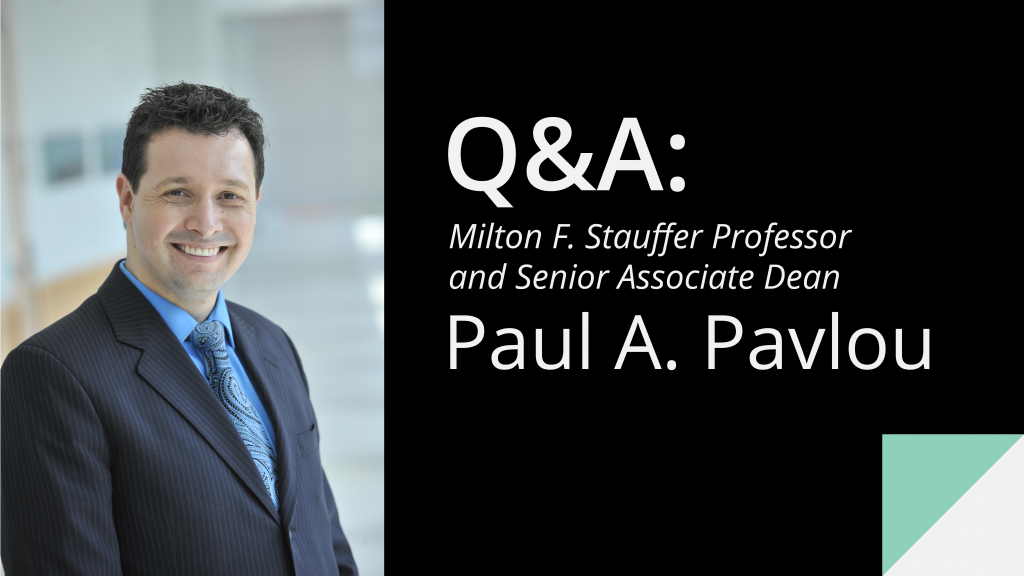Paul A. Pavlou is the Milton F. Stauffer Professor and senior associate dean at the Fox School of Business, and co-director of Temple University’s Data Science Institute. Dr. Pavlou has repeatedly been ranked number one in the world in publications by top publications in the Management Information Systems (MIS) discipline in 2010-2016, he has won several best paper awards, and his work has been cited more than 31,000 times by Google Scholar.
We caught up with Dr. Pavlou to ask what advice he has for doctoral students and aspiring researchers.
How do you determine a research question?
Observe what’s happening in the real world and try to see if you can contribute in those emerging areas. Start by seeing what is going on around the world, what companies do, what is happening in society, and trying to see what is interesting in the world and what excites industry and managers. It is about looking at the “big picture.” Often, an idea is not perfect the first time. You have to discuss it, improve it, sharpen it, and challenge it. You have to ask why people, academics, and managers would read your work—it should be an interesting problem that has broader societal implications. So you have to focus on what interests people and about what people would get excited. There’s simply no magic formula!
What happens once you have an idea you would like to research?
First, form a team that has complementary strengths. You look for researchers who either have or are doing work in a certain area. For example, if you are working with highly quantitative and empirical research, you need to find people who can deal with large scale data and sophisticated types of methodology. Sometimes you need an expert in an area who can guide the research in a certain way. You need to consider the unique advantages your project may carry. What do we have in terms of data? And keep asking, is this a practical problem that is exciting and relevant to industry and practice?
How can PhD students get feedback and develop their own points of view on research topics?
We have different forums to give feedback from different departments. There are school-wide events, such as the Young Scholars Interdisciplinary Forum and the PhD Paper Competition, where students can present their work, and we encourage them to be receptive to the feedback. There are also multiple department-specific events, and students should make an effort to present in front of the faculty. However, it is important that doctoral students have their own voice and viewpoints on their research topics. I do not want students to just go along with my feedback without questioning it. Students need to be able to defend their positions and not to agree without carefully thinking about the feedback. Students are supposed to know their topic better than anybody.
What advice do you have for current and prospective PhD students?
My advice is to do interesting research that is theoretically and methodologically strong. Try to be focused in your substantive area of expertise. It is best to be strong in one area versus being weak in two areas. Quality is more important than quantity! Also, be as rigorous as possible in terms of your methodology—and the doctoral programs are the best place to strengthen your methodological skills.
How can the Office of Research help doctoral students?
The Office of Research supports students in multiple ways. We provide services such as copyediting for manuscripts, and a workbook with tips for successful grant writing. We have small funding opportunities such as our new seed-funding program that is designed help students establish proof-of-concepts or complete a pilot study. We offer numerous databases for research, and can support travel arrangements for presenting at conferences. However, the most useful resource we have is the faculty and their time. In both the PhD program and Doctorate in Business Administration (DBA) program, we have advisors who can guide your research and dissertation.

